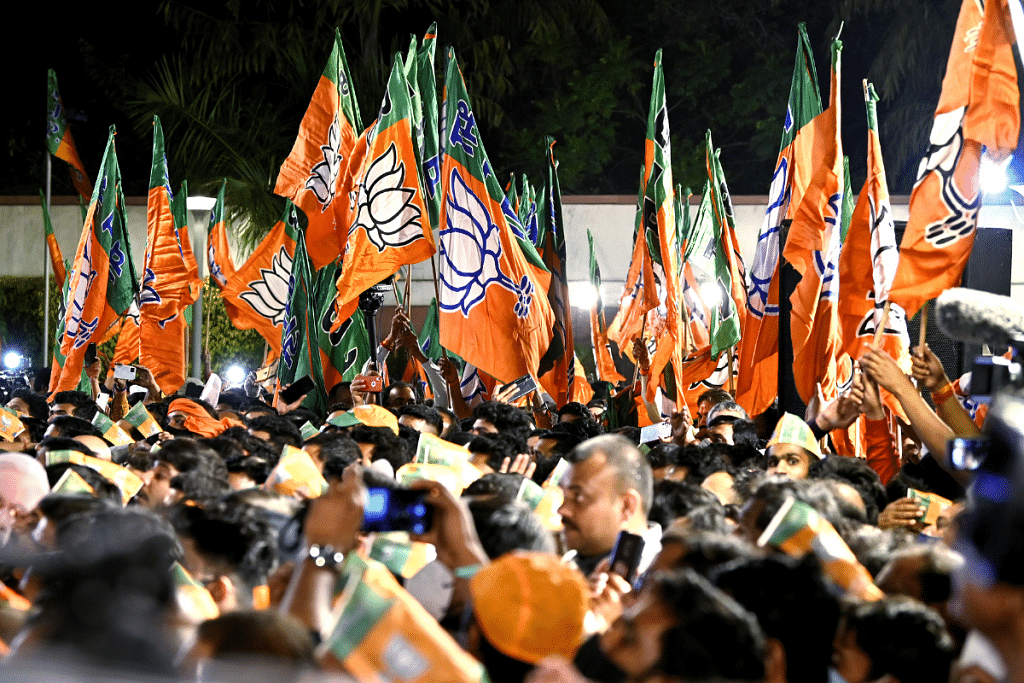New Delhi: A prominent American academic and columnist has compared the BJP with the Muslim Brotherhood, the Chinese Communist Party and the Likud Party to argue how it combines market economics, traditionalist values and populist rhetoric for charting a distinctively Hindu path to modernisation.
This came about a fortnight after Congress leader Rahul Gandhi had said that the Rashtriya Swayamsevak Sangh (RSS) was built on the lines of the Muslim Brotherhood.
Writing in an opinion piece for The Wall Street Journal (WSJ) — headlined “India’s BJP is the world’s most important party”, and published 20 March — Walter Russell Mead explained how the BJP, like Muslim Brotherhood, rejects “ideas and priorities of Western liberalism,” while “embracing key features of modernity”.
Similarly, the BJP like the CCP hopes to “lead a nation with more than a billion people to become a global superpower” and like the Likud Party in Israel “combines a basically pro-market economic stance with populist rhetoric and traditionalist values”, while “channels the anger of those who’ve felt excluded and despised by a cosmopolitan, Western-focused cultural and political elite,” he wrote.
His opinion about the Sangh and the BJP were based on interactions with senior BJP and RSS functionaries including RSS chief Mohan Bhagwat and Uttar Pradesh Chief Minister Yogi Adityanath.
In his opinion piece published 18 March in The New York Times (NYT), columnist Nicholas Kristof struck a note of caution about Narendra Modi even as he mentioned how the Indian prime minister “is expected to win a third term as prime minister in next year’s elections” with the “opposition in disarray”.
Kristof called the Indian prime minister a “Hindu nationalist” who is “eclipsing the economy-boosting, toilet-building Modi”. And his prediction goes as far as imagining the “worst case” as the senior journalist says, “just look next door at the sad shambles of today’s Pakistan.”
He, however, adds that the situation would not reach to such an extreme. “India still has a federal system that gives power to the states, and that constrains Modi,” the two-time Pulitzer Prize winner writes.
RSS ‘most powerful civil-society organisation’
Mead writes that he is convinced that Americans and Westerners generally need to engage much more deeply with a “complex and powerful movement”.
“From a fringe of mostly marginalized intellectuals and religious enthusiasts, the RSS has become perhaps the most powerful civil-society organisation in the world. Its rural and urban development programs, religious education and revival efforts and civic activism, staffed by thousands of volunteers from all walks of life, have succeeded in forming the political consciousness and focusing the energies of hundreds of millions of people,” he writes.
The author argued that the BJP is “the most important foreign political party in the world” from the standpoint of American national interests, adding that it came to power twice and is expected to win again in 2024. The article also praised the RSS, saying that its activists have played a significant role in efforts to fight caste discrimination.
“For the foreseeable future the BJP will be calling the shots in a country without whose help American efforts to balance rising Chinese power are likely to fall short,” the professor of foreign affairs and humanities in the US’ Bard College, wrote, calling it the “least understood party”.
(Edited by Tony Rai)
Also Read: RSS is strongest & weakest it’s ever been. Pitfalls of going from rebel to core of establishment
